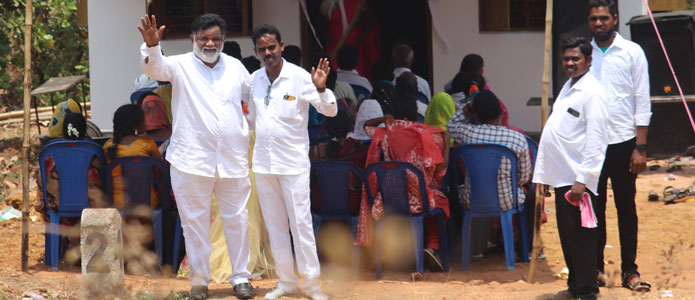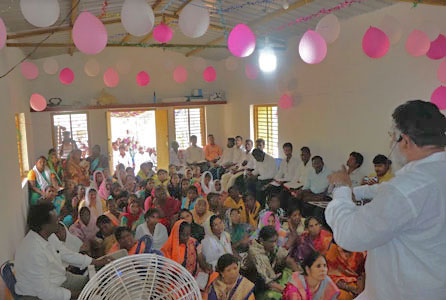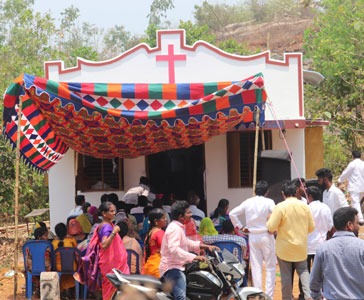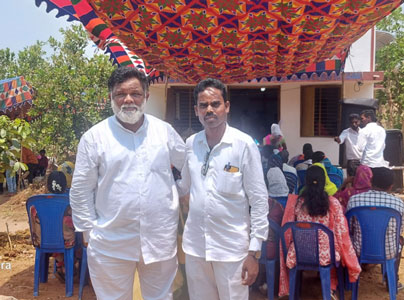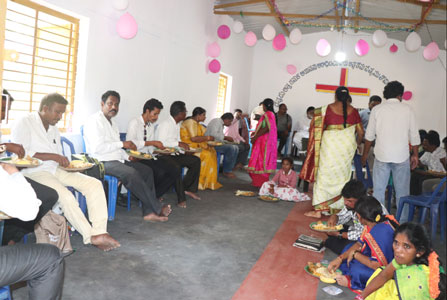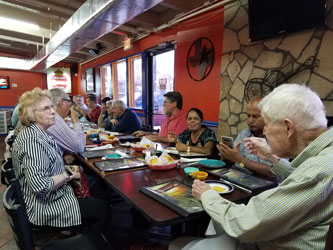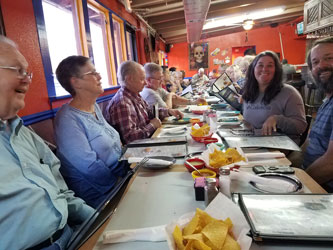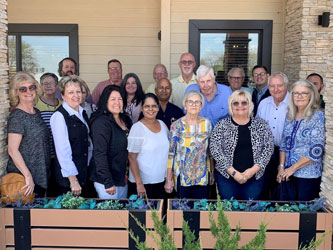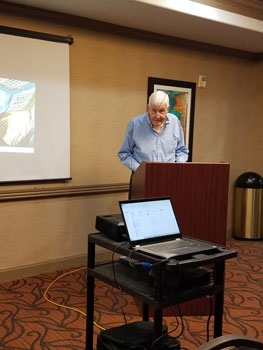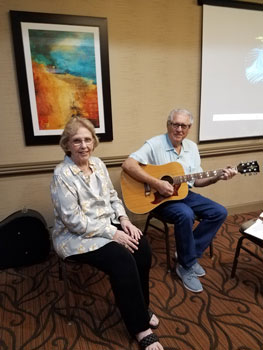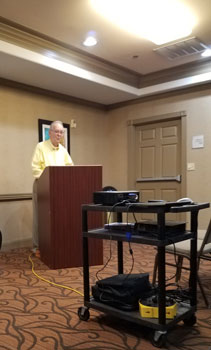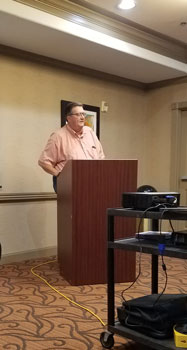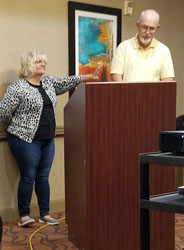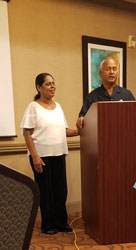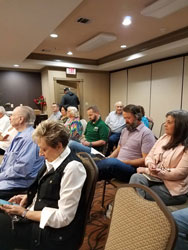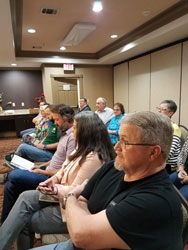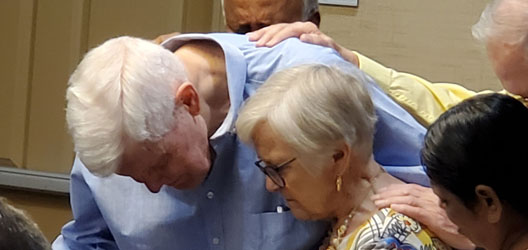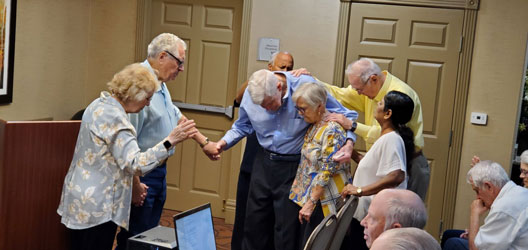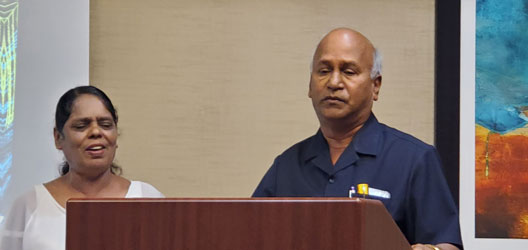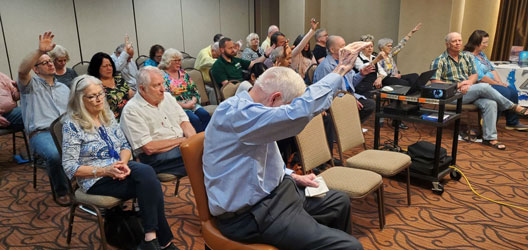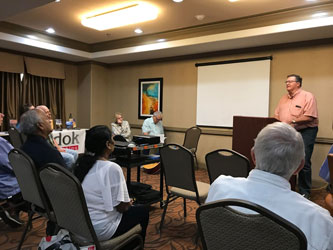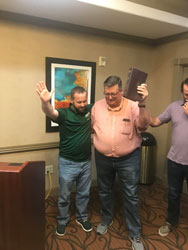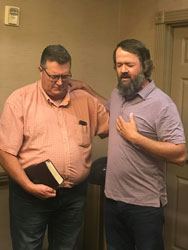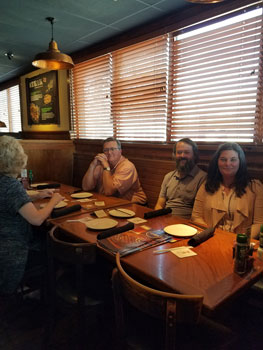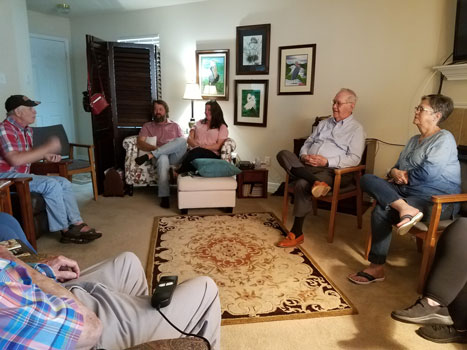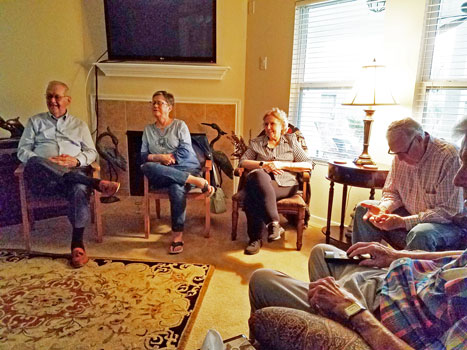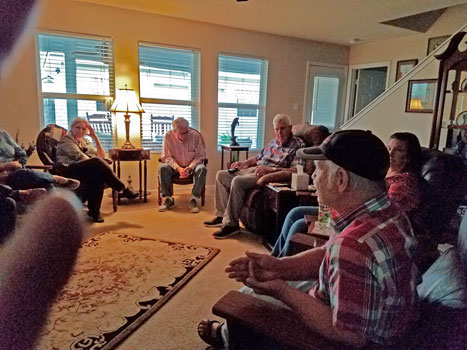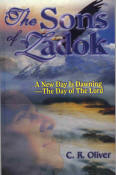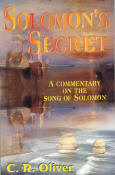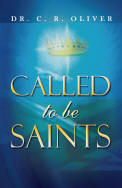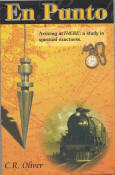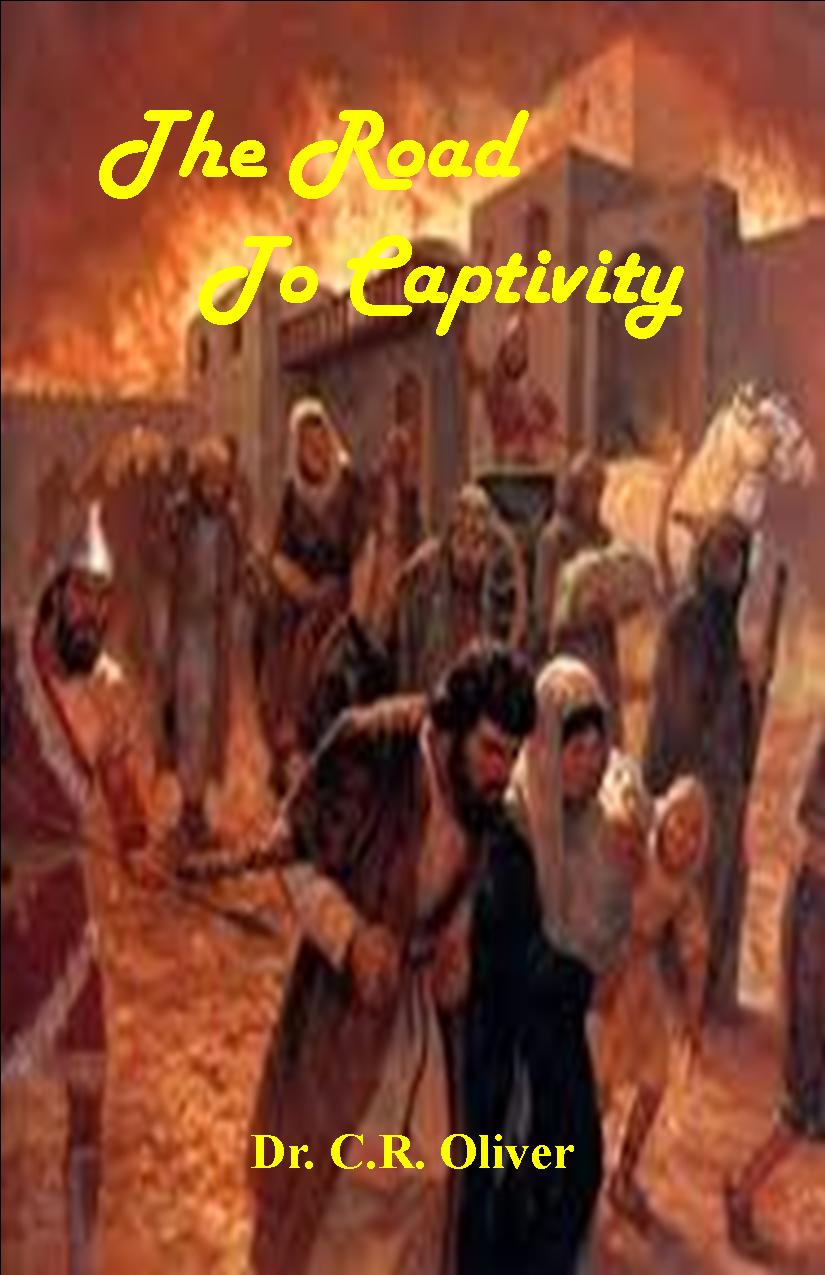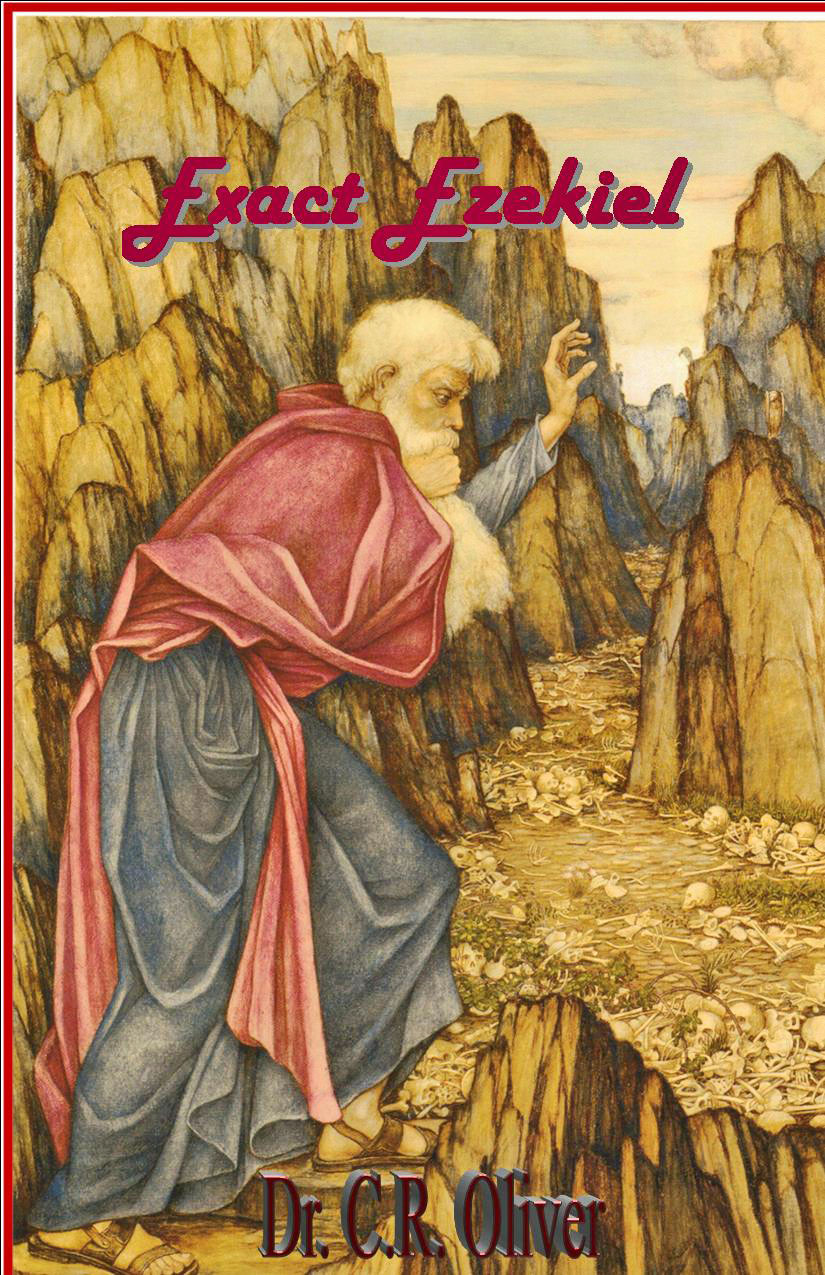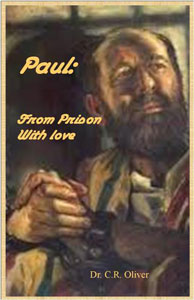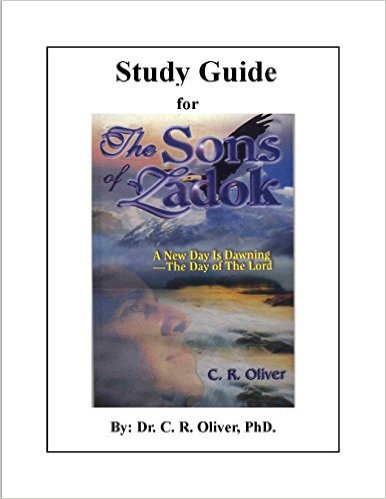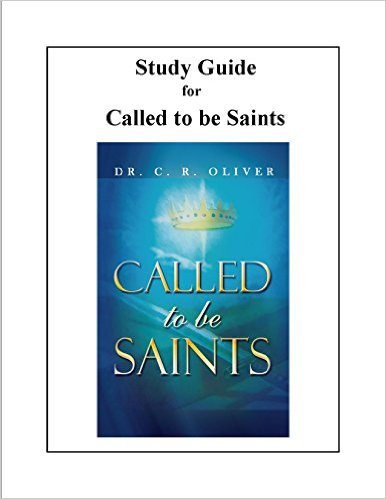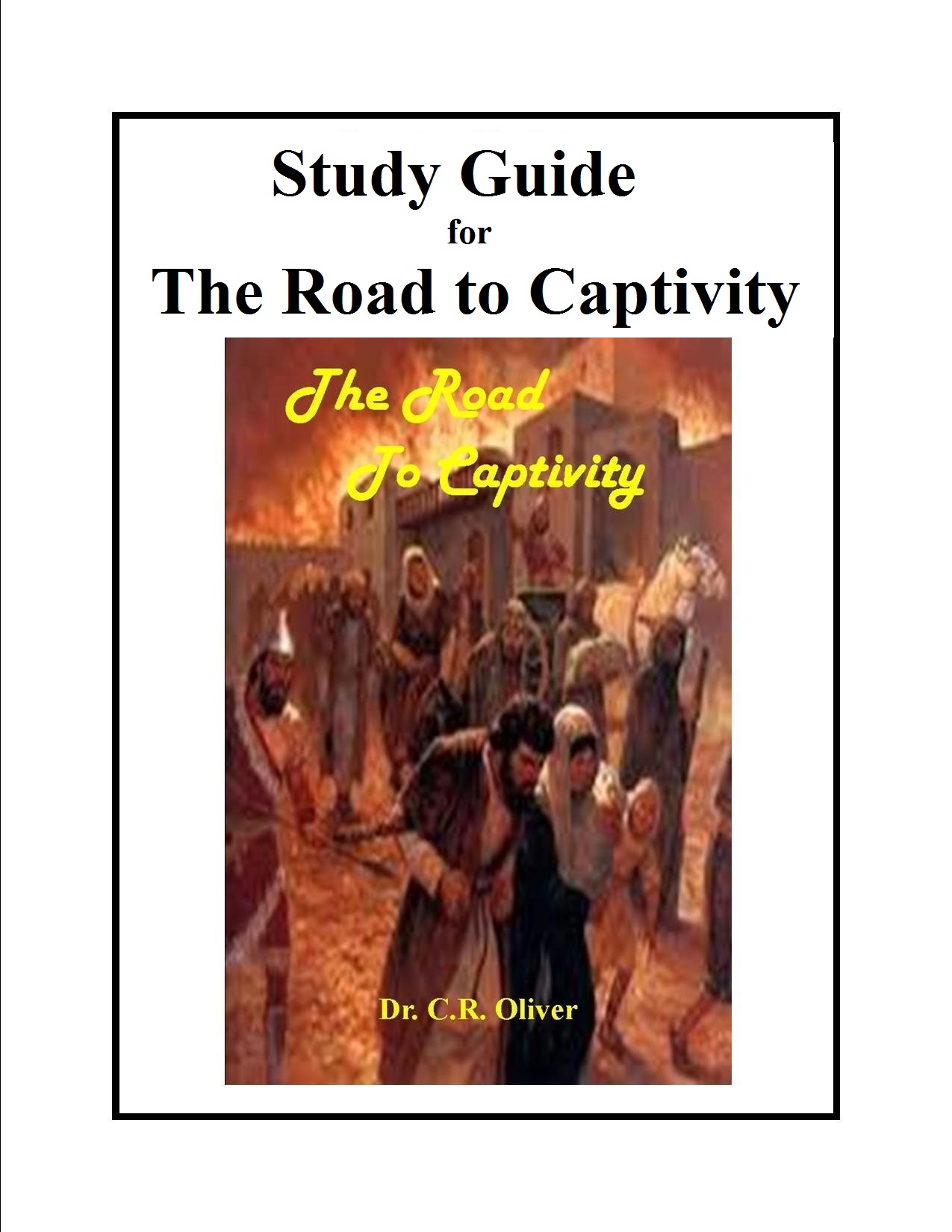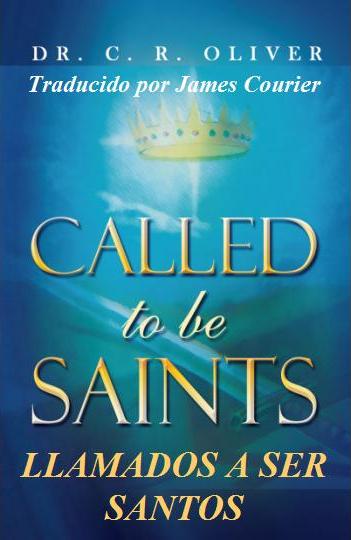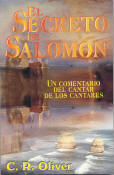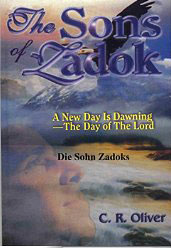Studies on "The Man of God"
ZADOK PUBLICATIONS - Dr. C. R. OLIVER
May, 2022
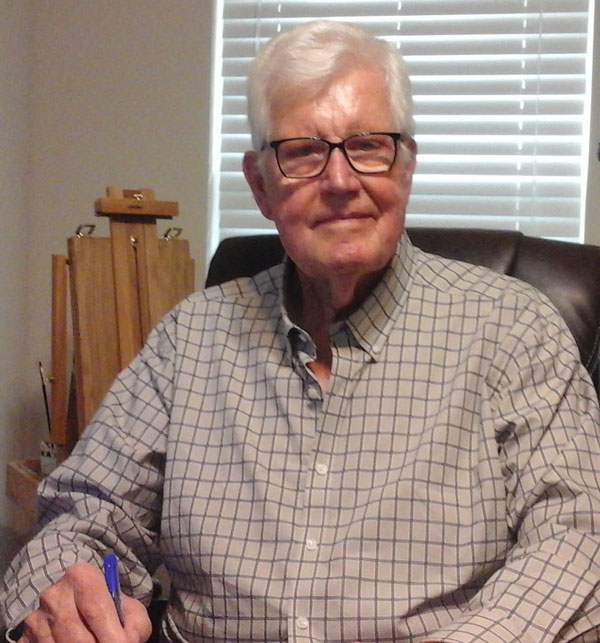
|
ZADOK PUBLICATIONS MONTHLY NEWSLETTER
May 1, 2022
Studies on "The Man of God"
You may watch this Newsletter in a video HERE.
For sometime now, I have been intrigued with the appearance of and the anonymity of those personages known as the "Man of God." Throughout the Old Testament, there appear several under this designation. I first got interested in studying the several Scriptures involving the activities of the "Man of God" when I wrote the Sons of Zadok. One of them spoke to Eli about his sons.
1 Samuel 2:27-36:
Then a man of God came to Eli and said to him, "Thus says the Lord: 'Did I not clearly reveal Myself to the house of your father when they were in Egypt in Pharaoh's house? 28 Did I not choose him out of all the tribes of Israel to be My priest, to offer upon My altar, to burn incense, and to wear an ephod before Me? And did I not give to the house of your father all the offerings of the children of Israel made by fire? 29 Why do you kick at My sacrifice and My offering which I have commanded in My dwelling place, and honor your sons more than Me, to make yourselves fat with the best of all the offerings of Israel My people?' 30 Therefore the Lord God of Israel says: 'I said indeed that your house and the house of your father would walk before Me forever.' But now the Lord says: 'Far be it from Me; for those who honor Me I will honor, and those who despise Me shall be lightly esteemed. 31 Behold, the days are coming that I will cut off your arm and the arm of your father's house, so that there will not be an old man in your house. 32 And you will see an enemy in My dwelling place, despite all the good which God does for Israel. And there shall not be an old man in your house forever. 33 But any of your men whom I do not cut off from My altar shall consume your eyes and grieve your heart. And all the descendants of your house shall die in the flower of their age. 34 Now this shall be a sign to you that will come upon your two sons, on Hophni and Phinehas: in one day they shall die, both of them. 35 Then I will raise up for Myself a faithful priest who shall do according to what is in My heart and in My mind. I will build him a sure house, and he shall walk before My anointed forever. 36 And it shall come to pass that everyone who is left in your house will come and bow down to him for a piece of silver and a morsel of bread, and say, "Please, put me in one of the priestly positions, that I may eat a piece of bread."'"
|
The "man of God" prophesied to Eli and exhibited a great deal of knowledge about the whole situation. Appearing suddenly and without revealing his name, this individual spoke with authority and pronounced the oracle of God, then departed.
This is characteristically the modus operandi of those in this office.
In the subsequent passages of our study, one will find there is quite a range of those carrying the "Man of God" status. Angels, as well as seasoned prophets, stand in this position. Sometimes, the message they bring is pleasant and uplifting (as in the announcement of the birth of Samson or Samuel), while at other times, the message is dark and foreboding (as in the case of Eli).
Judges 13:2-20:
Now there was a certain man from Zorah, of the family of the Danites, whose name was Manoah; and his wife was barren and had no children. 3 And the Angel of the Lord appeared to the woman and said to her, "Indeed now, you are barren and have borne no children, but you shall conceive and bear a son. 4 Now therefore, please be careful not to drink wine or similar drink, and not to eat anything unclean. 5 For behold, you shall conceive and bear a son. And no razor shall come upon his head, for the child shall be a Nazirite to God from the womb; and he shall begin to deliver Israel out of the hand of the Philistines."
6 So the woman came and told her husband, saying, "A Man of God came to me, and His countenance was like the countenance of the Angel of God, very awesome; but I did not ask Him where He was from, and He did not tell me His name. 7 And He said to me, 'Behold, you shall conceive and bear a son. Now drink no wine or similar drink, nor eat anything unclean, for the child shall be a Nazirite to God from the womb to the day of his death.'"
8 Then Manoah prayed to the Lord, and said, "O my Lord, please let the Man of God whom You sent come to us again and teach us what we shall do for the child who will be born."
9 And God listened to the voice of Manoah, and the Angel of God came to the woman again as she was sitting in the field; but Manoah her husband was not with her. 10 Then the woman ran in haste and told her husband, and said to him, "Look, the Man who came to me the other day has just now appeared to me!"
11 So Manoah arose and followed his wife. When he came to the Man, he said to Him, "Are You the Man who spoke to this woman?"
And He said, "I am."
12 Manoah said, "Now let Your words come to pass! What will be the boy's rule of life, and his work?"
13 So the Angel of the Lord said to Manoah, "Of all that I said to the woman let her be careful. 14 She may not eat anything that comes from the vine, nor may she drink wine or similar drink, nor eat anything unclean. All that I commanded her let her observe."
15 Then Manoah said to the Angel of the Lord, "Please let us detain You, and we will prepare a young goat for You."
16 And the Angel of the Lord said to Manoah, "Though you detain Me, I will not eat your food. But if you offer a burnt offering, you must offer it to the Lord." (For Manoah did not know He was the Angel of the Lord.)
17 Then Manoah said to the Angel of the Lord, "What is Your name, that when Your words come to pass, we may honor You?"
18 And the Angel of the Lord said to him, "Why do you ask My name, seeing it is wonderful?"
19 So Manoah took the young goat with the grain offering, and offered it upon the rock to the Lord. And He did a wondrous thing while Manoah and his wife looked on — 20 it happened as the flame went up toward heaven from the altar — the Angel of the Lord ascended in the flame of the altar! When Manoah and his wife saw this, they fell on their faces to the ground
NKJV
|
The Judgeship of Samson began with this announcement.
In this next passage, the "Man of God" prophesied to an inanimate object: an altar.
There have been other times when the "Man of God" spoke to inanimate objects, some of which acted as "witnesses."
Moses struck the rock, Ezekiel addressed mountains, while others commanded rain clouds to appear or oil containers to multiply.
1 Kings 13:1-10:
And behold, a man of God went from Judah to Bethel by the word of the Lord, and Jeroboam stood by the altar to burn incense. 2 Then he cried out against the altar by the word of the Lord, and said, "O altar, altar! Thus says the Lord: 'Behold, a child, Josiah by name, shall be born to the house of David; and on you he shall sacrifice the priests of the high places who burn incense on you, and men's bones shall be burned on you.'" 3 And he gave a sign the same day, saying, "This is the sign which the Lord has spoken: Surely the altar shall split apart, and the ashes on it shall be poured out."
4 So it came to pass when King Jeroboam heard the saying of the man of God, who cried out against the altar in Bethel, that he stretched out his hand from the altar, saying, "Arrest him!" Then his hand, which he stretched out toward him, withered, so that he could not pull it back to himself. 5 The altar also was split apart, and the ashes poured out from the altar, according to the sign which the man of God had given by the word of the Lord. 6 Then the king answered and said to the man of God, "Please entreat the favor of the Lord your God, and pray for me, that my hand may be restored to me."
So the man of God entreated the Lord, and the king's hand was restored to him, and became as before. 7 Then the king said to the man of God, "Come home with me and refresh yourself, and I will give you a reward."
8 But the man of God said to the king, "If you were to give me half your house, I would not go in with you; nor would I eat bread nor drink water in this place. 9 For so it was commanded me by the word of the Lord, saying, 'You shall not eat bread, nor drink water, nor return by the same way you came.'" 10 So he went another way and did not return by the way he came to Bethel.
|
Several aspects relative to dealing with a Man of God appear in this passage. Foremost was "touch not My anointed and do My prophets no harm." "Arrest him" was not a proper response. Attacking him was not acceptable either. The Man of God prayed for his attacker to be healed, thus showing his faithfulness to the Word's admonition to "pray for your enemies." He also followed the exact plan of God in not socializing with the King and returning home according to instruction.
The following passage shows the consequences of not following instructions.
1 Kings 13:11-32:
11 Now an old prophet dwelt in Bethel, and his sons came and told him all the works that the man of God had done that day in Bethel; they also told their father the words which he had spoken to the king. 12 And their father said to them, "Which way did he go?" For his sons had seen which way the man of God went who came from Judah. 13 Then he said to his sons, "Saddle the donkey for me." So they saddled the donkey for him; and he rode on it, 14 and went after the man of God, and found him sitting under an oak. Then he said to him, "Are you the man of God who came from Judah?"
And he said, "I am."
15 Then he said to him, "Come home with me and eat bread."
16 And he said, "I cannot return with you nor go in with you; neither can I eat bread nor drink water with you in this place. 17 For I have been told by the word of the Lord, 'You shall not eat bread nor drink water there, nor return by going the way you came.'"
18 He said to him, "I too am a prophet as you are, and an angel spoke to me by the word of the Lord, saying, 'Bring him back with you to your house, that he may eat bread and drink water.'" (He was lying to him.)
19 So he went back with him, and ate bread in his house, and drank water.
20 Now it happened, as they sat at the table, that the word of the Lord came to the prophet who had brought him back; 21 and he cried out to the man of God who came from Judah, saying, "Thus says the Lord: 'Because you have disobeyed the word of the Lord, and have not kept the commandment which the Lord your God commanded you, 22 but you came back, ate bread, and drank water in the place of which the Lord said to you, "Eat no bread and drink no water," your corpse shall not come to the tomb of your fathers.'"
23 So it was, after he had eaten bread and after he had drunk, that he saddled the donkey for him, the prophet whom he had brought back. 24 When he was gone, a lion met him on the road and killed him. And his corpse was thrown on the road, and the donkey stood by it. The lion also stood by the corpse. 25 And there, men passed by and saw the corpse thrown on the road, and the lion standing by the corpse. Then they went and told it in the city where the old prophet dwelt.
26 Now when the prophet who had brought him back from the way heard it, he said, "It is the man of God who was disobedient to the word of the Lord. Therefore, the Lord has delivered him to the lion, which has torn him and killed him, according to the word of the Lord which He spoke to him." 27 And he spoke to his sons, saying, "Saddle the donkey for me." So they saddled it. 28 Then he went and found his corpse thrown on the road, and the donkey and the lion standing by the corpse. The lion had not eaten the corpse nor torn the donkey. 29 And the prophet took up the corpse of the man of God, laid it on the donkey, and brought it back. So the old prophet came to the city to mourn, and to bury him. 30 Then he laid the corpse in his own tomb; and they mourned over him, saying, "Alas, my brother!" 31 So it was, after he had buried him, that he spoke to his sons, saying, "When I am dead, then bury me in the tomb where the man of God is buried; lay my bones beside his bones. 32 For the saying which he cried out by the word of the Lord against the altar in Bethel, and against all the shrines on the high places which are in the cities of Samaria, will surely come to pass."
|
Several matters need discussion at this point. First, this is the same Man of God who had successfully carried out his duties under the Lord's command with Jeroboam. (The King, sadly, did not repent.) Second, the Man of God knew the directions God had given him, because he quoted them verbatim to the old prophet-so, he was not ignorant of God's plan. Third, the old prophet may have been motivated by desiring fellowship with a fellow "Man of God." Fourth, the "Man of God" no doubt felt rejected by the King and perhaps found solace in turning in with a fellow prophet. Fifth, listening to the wrong preacher instead of God caused his death. Sixth, the lion did not eat him, but did his job of killing him. (There was a spiritual lion seeking to devour him.) The "Man of God's" body was respected, even in disobedient death. Sadly, the old prophet recognized his part in the event, evidenced by his confession.
(A similar situation happened under the prophet Jeremiah with the Rechabites. However, the Lord told him to prepare a wine dinner for them. The outcome was vastly different, because even with the pressure of a major prophet declaring he was directed by God, they refused to break their covenant of abstinence. Even in the face of much preparation, considerable expense for the wine and the paying of wait staff and other expenses, they did not waiver.)
The "Man of God" and his message are inseparable. Even in death, these saints are respected. The next two passages show the power of their endless life.
2 Kings 13:20-21:
Then Elisha died, and they buried him. And the raiding bands from Moab invaded the land in the spring of the year. 21 So it was, as they were burying a man, that suddenly they spied a band of raiders; and they put the man in the tomb of Elisha; and when the man was let down and touched the bones of Elisha, he revived and stood on his feet.
2 Kings 23:15-18: Respect for the man of God
Moreover, the altar that was at Bethel, and the high place which Jeroboam the son of Nebat, who made Israel sin, had made, both that altar and the high place he broke down; and he burned the high place and crushed it to powder, and burned the wooden image. 16 As Josiah turned, he saw the tombs that were there on the mountain. And he sent and took the bones out of the tombs and burned them on the altar, and defiled it according to the word of the Lord which the man of God proclaimed, who proclaimed these words. 17 Then he said, "What gravestone is this that I see?"
So, the men of the city told him, "It is the tomb of the man of God who came from Judah and proclaimed these things which you have done against the altar of Bethel."
18 And he said, "Let him alone; let no one move his bones." So, they let his bones alone, with the bones of the prophet who came from Samaria.
|
This second passage is a continuation of the Man of God's word to King Jeroboam. Regardless of his meeting with the lion, his words were fulfilled by Josiah.
God's word is not bound by time.
Although many who are called the "Man of God" remain anonymous, not so with Shemaiah. These next Scriptures deal with battle strategy.
2 Chronicles 11:1-4: SHEMAIAH, the man of God
Now when Rehoboam came to Jerusalem, he assembled from the house of Judah and Benjamin one hundred and eighty thousand chosen men who were warriors, to fight against Israel, that he might restore the kingdom to Rehoboam.
2 But the word of the Lord came to Shemaiah the man of God, saying, 3 "Speak to Rehoboam the son of Solomon, king of Judah, and to all Israel in Judah and Benjamin, saying, 4 'Thus says the Lord: "You shall not go up or fight against your brethren! Let every man return to his house, for this thing is from Me."'" Therefore, they obeyed the words of the Lord, and turned back from attacking Jeroboam.
2 Chronicles 12:5-7:
5 Then Shemaiah the prophet came to Rehoboam and the leaders of Judah, who were gathered together in Jerusalem because of Shishak, and said to them, "Thus says the Lord: 'You have forsaken Me, and therefore I also have left you in the hand of Shishak.'"
6 So the leaders of Israel and the king humbled themselves; and they said, "The Lord is righteous."
7 Now when the Lord saw that they humbled themselves, the word of the Lord came to Shemaiah, saying, "They have humbled themselves; therefore, I will not destroy them, but I will grant them some deliverance
|
Note how the "Man of God" keeps many out of harm's way. Battle strategy is often not found in the general's tent, but in the prophet's words.
2 Chronicles 25:5-16:
Moreover Amaziah gathered Judah together and set over them captains of hundreds, according to their fathers' houses, throughout all Judah and Benjamin; and he numbered them from twenty years old and above, and found them to be three hundred thousand choice men, able to go to war, who could handle spear and shield. 6 He also hired one hundred thousand mighty men of valor from Israel for one hundred talents of silver. 7 But a man of God came to him, saying, "O king, do not let the army of Israel go with you, for the Lord is not with Israel — not with any of the children of Ephraim. 8 But if you go, be gone! Be strong in battle! Even so, God shall make you fall before the enemy; for God has power to help and to overthrow."
9 Then Amaziah said to the man of God, "But what shall we do about the hundred talents which I have given to the troops of Israel?"
And the man of God answered, "The Lord is able to give you much more than this." 10 So Amaziah discharged the troops that had come to him from Ephraim, to go back home. Therefore, their anger was greatly aroused against Judah, and they returned home in great anger.
11 Then Amaziah strengthened himself, and leading his people, he went to the Valley of Salt and killed ten thousand of the people of Seir. 12 Also the children of Judah took captive ten thousand alive, brought them to the top of the rock, and cast them down from the top of the rock, so that they all were dashed in pieces.
13 But as for the soldiers of the army which Amaziah had discharged, so that they would not go with him to battle, they raided the cities of Judah from Samaria to Beth Horon, killed three thousand in them, and took much spoil.
14 Now it was so, after Amaziah came from the slaughter of the Edomites, that he brought the gods of the people of Seir, set them up to be his gods, and bowed down before them and burned incense to them. 15 Therefore the anger of the Lord was aroused against Amaziah, and He sent him a prophet who said to him, "Why have you sought the gods of the people, which could not rescue their own people from your hand?"
16 So it was, as he talked with him, that the king said to him, "Have we made you the king's counselor? Cease! Why should you be killed?"
Then the prophet ceased, and said, "I know that God has determined to destroy you, because you have done this and have not heeded my advice."
NKJV
|
Twice in this passage is the emergence of a prophet (neither one is named). Whether they are both the same or separate is not the issue. Their messages came to pass (which is the credential of a true prophet).
For some reason, I am led to include the prophet Nathan who dealt with David.
His approach was smooth, using a moral illustration to draw David into the issue at hand. Approaching a strong King like David took finesse. "Thou art the man," drove home his point like an arrow. This "Man of God" related the sin of David and Bathsheba and prophesied the death of their illegitimate offspring.
Observe the drama and know that a true "Man of God" is often brought into situations like this.
2 Samuel 12:1-15:
12 Then the Lord sent Nathan to David. And he came to him, and said to him: "There were two men in one city, one rich and the other poor. 2 The rich man had exceedingly many flocks and herds. 3 But the poor man had nothing, except one little ewe lamb which he had bought and nourished; and it grew up together with him and with his children. It ate of his own food and drank from his own cup and lay in his bosom; and it was like a daughter to him. 4 And a traveler came to the rich man, who refused to take from his own flock and from his own herd to prepare one for the wayfaring man who had come to him; but he took the poor man's lamb and prepared it for the man who had come to him."
5 So David's anger was greatly aroused against the man, and he said to Nathan, "As the Lord lives, the man who has done this shall surely die! 6 And he shall restore fourfold for the lamb, because he did this thing and because he had no pity."
7 Then Nathan said to David, "You are the man! Thus says the Lord God of Israel: 'I anointed you king over Israel, and I delivered you from the hand of Saul. 8 I gave you your master's house and your master's wives into your keeping, and gave you the house of Israel and Judah. And if that had been too little, I also would have given you much more! 9 Why have you despised the commandment of the Lord, to do evil in His sight? You have killed Uriah the Hittite with the sword; you have taken his wife to be your wife, and have killed him with the sword of the people of Ammon. 10 Now therefore, the sword shall never depart from your house, because you have despised Me, and have taken the wife of Uriah the Hittite to be your wife.' 11 Thus says the Lord: 'Behold, I will raise up adversity against you from your own house; and I will take your wives before your eyes and give them to your neighbor, and he shall lie with your wives in the sight of this sun. 12 For you did it secretly, but I will do this thing before all Israel, before the sun.'"
13 So David said to Nathan, "I have sinned against the Lord."
And Nathan said to David, "The Lord also has put away your sin; you shall not die. 14 However, because by this deed you have given great occasion to the enemies of the Lord to blaspheme, the child also who is born to you shall surely die." 15 Then Nathan departed to his house.
|
WHY did the Lord not spare the child is answered in Deuteronomy 23:2.
2 "One of illegitimate birth shall not enter the assembly of the Lord; even to the tenth generation none of his descendants shall enter the assembly of the Lord.
NKJV
|
The fact that Nathan did not stick around is significant, as well. The words of the prophet are not up for debate or modification.
The man of God often enters without fanfare and departs similarly. The modern question is this, "if God sent a "Man of God" with a specific message for a congregation or a person of leadership, would he be allowed to speak?"
1 Kings 20:10-14:
10 Then Ben-Hadad sent to him and said, "The gods do so to me, and more also, if enough dust is left of Samaria for a handful for each of the people who follow me."
11 So the king of Israel answered and said, "Tell him, 'Let not the one who puts on his armor boast like the one who takes it off.'"
12 And it happened when Ben-Hadad heard this message, as he and the kings were drinking at the command post, that he said to his servants, "Get ready." And they got ready to attack the city.
13 Suddenly a prophet approached Ahab king of Israel, saying, "Thus says the Lord: 'Have you seen all this great multitude? Behold, I will deliver it into your hand today, and you shall know that I am the Lord.'"
14 So Ahab said, "By whom?"
And he said, "Thus says the Lord: 'By the young leaders of the provinces.'"
Then he said, "Who will set the battle in order?"
And he answered, "You."
|
Men of God can be prophets, but
Not all prophets are men of God:
Jeremiah 28:15-17:
15 Then the prophet Jeremiah said to Hananiah the prophet, "Hear now, Hananiah, the Lord has not sent you, but you make this people trust in a lie. 16 Therefore thus says the Lord: 'Behold, I will cast you from the face of the earth. This year you shall die, because you have taught rebellion against the Lord.'"
17 So Hananiah the prophet died the same year in the seventh month.
|
This might be a good place to examine the purposeful exclusion of the "Man of God" by people of power. A great example is the case of Nathan, the prophet, and the anarchist, Adonijah, who sought to usurp the throne of David. He held an inaugural feast and did not invite any of the four who supported David's choice of Solomon.
1 Kings 1:25-26:
…. (Nathan speaking) "They are eating and drinking before him; and they say, 'Long live King Adonijah!' 26 But he has not invited me — me your servant — nor Zadok the priest, nor Benaiah the son of Jehoiada, nor your servant Solomon."
NKJV
Luke 6:22-23:
22 Blessed are you when men hate you,
And when they exclude you,
And revile you, and cast out your name as evil,
For the Son of Man's sake.
23 Rejoice in that day and leap for joy!
For indeed your reward is great in heaven,
For in like manner their fathers did to the prophets.
|
Dear reader, we are experiencing the exclusion of the "Men of God" in world media and in officialdom on a daily basis. Adonijah and his followers did not want to hear from God or any of His servants, neither does the administration of the U.S.
Many churches do not want to hear either. Adonijah's claim to fame was short lived, for truth prevailed and Solomon came to power. So it will be again!
While I was compiling this study, I asked the Lord for the characteristics of the "Man of God" from His view. He gave me these seven.
SEVEN THINGS ABOUT THE MAN OF GOD:
- He is usable: God can send him on missions of mercy or correction at any time.
- He listens to God and only moves when directed.
- The "Man of God" speaks with the authority of the oracle of God.
- The "Man of God" is not intimidated by the whims of men: they might get angry or repent readily, but he is not interested in the surface emotions.
- The "Man of God" must depend on exactness/ he must not deviate from the plan of God.
- He does not seek his own glory or fame.
- He is someone the world of evil fears.
Allow me to say that at least 15 times in my ministry, I have acted in the capacity of the "Man of God." No one can imagine the blessings nor the persecutions associated with such assignments.
When Paul addressed Timothy, he called him a "Man of God" and gave him these scriptures.
1 Timothy 6:11-17:
11 But you, O man of God, flee these things and pursue righteousness, godliness, faith, love, patience, gentleness. 12 Fight the good fight of faith, lay hold on eternal life, to which you were also called and have confessed the good confession in the presence of many witnesses. 13 I urge you in the sight of God who gives life to all things, and before Christ Jesus who witnessed the good confession before Pontius Pilate, 14 that you keep this commandment without spot, blameless until our Lord Jesus Christ's appearing, 15 which He will manifest in His own time, He who is the blessed and only Potentate, the King of kings and Lord of lords, 16 who alone has immortality, dwelling in unapproachable light, whom no man has seen or can see, to whom be honor and everlasting power. Amen.
2 Timothy 3:16-17:
All Scripture is given by inspiration of God, and is profitable for doctrine, for reproof, for correction, for instruction in righteousness, 17 that the man of God may be complete, thoroughly equipped for every good work.
|
Many of you may have filled the role of a "Man or Woman of God," as well, and can testify similarly. If so, may the Lord richly bless you and may you be comforted by reading this treatise.
Until Next Month,
Dr. Cosby R. Oliver, PhD.
|
MISSIONS REPORT:
From: Ghiorghi Cazacu - Gospel Ministries International, Inc.
Contact Information:
Dorothy Maue
US Administrator
Gospel Ministries International, Inc.
PO Box 661
Belleville, IL 62222
Telephone: (618) 239-0215
https://www.gmii.org/gmi-ministries
Email: gmiius@sbcglobal.net
Reporting from Ukraine, Rev. Cavascu tells about a young mother and her 2 children crossing from one section of her village to another while bullets were flying. She and her children were singing songs of praise to Jesus. When they arrived into safe territory she was asked, "Where is the man that came with you?" She replied, "what man?" They said, "When you crossed over here, there was a man walking with you." (Angel force was there, praise God.)
Thank you so much for your generous contribution towards helping the families and soldiers in Kiev, Ukraine. The people were SO VERY GRATEFUL!
Brother Cavascu also reported that the India church was dedicated April 13, and held their first service on Easter Sunday. Thank the Lord for the completion of this building paid for totally by Oliver Evangelistic Association (OEA) to the glory of God. For all of you who contributed to this cause through your gifts, THANK YOU.
|
OLIVER EVANGELISTIC ASSOCIATION BOARD MEETING:
|
The OEA Board Meeting was held in Conroe, Texas, April 1st and 2nd. In addition to the seven board members, we were joined by a group of missionaries from a wide range of locations. The following pictures are from this meeting:
Dinner and fellowship at Casa Medina Mexican Restaurant.
A group picture of the Board and Guests.
Dr. Oliver opens the meeting.
Praise and Worship led by Donald and Beverly Davis.
An update from Jim McCants.
A presentation from Donnie West.
A report from Larry and Marla Johnston, missionaries in Guatemala.
An update from Dr. Samuel and Anusuya Karunanithi, Ministry in Mexico and India.
Board members and guests.
A time of prayer for Dr. C. R. and Betty Oliver.
Dr. Samuel and Anusuya Karunanithi speak about ministry in India.
Their ministry is lifted in prayer.
Donnie West shares a personal need which is followed by intercessory prayer.
Lunch at Outback followed by a time of fellowship.
|
Dr. OLIVER'S BOOKS ARE NOW AVAILABLE FOR THE KINDLE ON AMAZON.COM AND FOR THE NOOK AT BARNES & NOBLE!
Paperback volumes may still be ordered through our website.
To see the currently available books from Amazon, click on the cover images below.
In Spanish:
In German:
To see the currently available books from Barnes & Noble, click on the cover images below.
In Spanish:
In German:
To subscribe to this newsletter, please complete the following form and click "Subscribe". A confirming email will then be sent to your email address.
|



